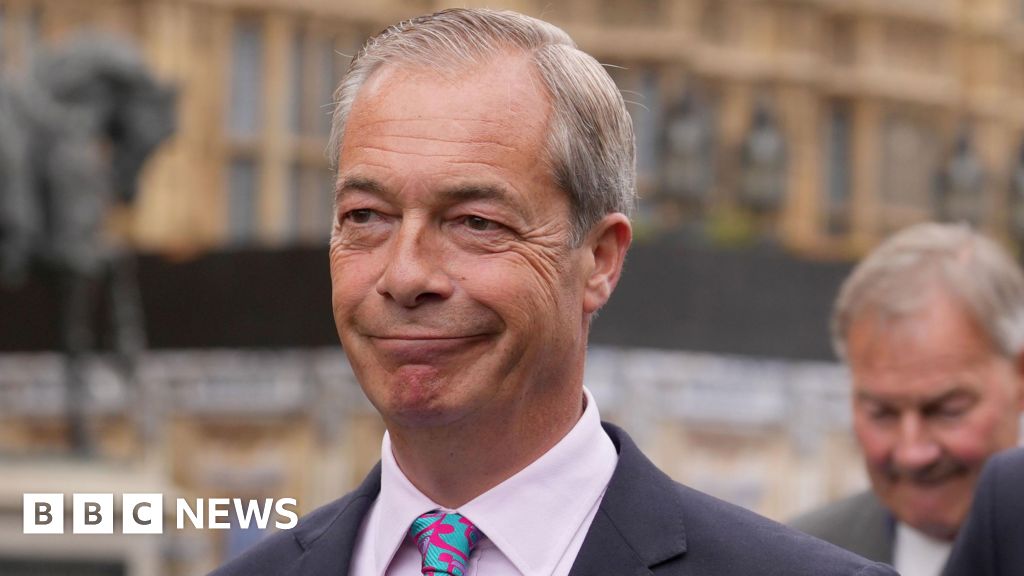The UN Security Council has held an emergency meeting after Russian President Vladimir Putin decided to send military forces to Ukraine.
BBC wrote that many feared Putin would start the biggest war in Europe since 1945.
Fifteen years ago, Putin gave a 30-minute speech that shocked audiences – and which political is a warning of what might happen now.
see more
Hammered loose
By then, Putin had been president of Russia for seven years and had been greeted with courtesy at the International Security Conference in Munich.
“The whole” world believes that Russia wants to cooperate in disarmament plans. instead Putin spent his entire speech rumbling against the United States and NATO.
Alisa (38) ready for war
In his speech, he said that the United States is running a one-sided race that makes the world a more dangerous place, and that the United States’ tendency to act alone makes inflamed conflicts even more inflamed.
– No one feels safe anymore, because no one can hide behind international law, he said.

EQUIPMENT: Russian President Vladimir Putin during a press conference in Moscow on February 15. Photo: Sputnik / Sergey Guneev / Reuters
see more
– It has nothing to do with democracy
Putin claims that the United States only wants one thing: that there should be a single center of power in the world.
– This has nothing to do with democracy. Democracy means that the opinion of the majority is weighed against the opinion of the minority. People are always trying to teach us democracy, but those who are going to teach us are not going to learn on their own, he said.
He also criticized the United States’ plans to create a missile shield around Russia’s borders, such as in NATO countries Poland and the Czech Republic.

2007: German Chancellor Angela Merkel, US Secretary of Defense Robert Gates and US Senators John McCain and Joe Lieberman pose for a photo during the International Security Conference in Munich in 2007. Photo: AFP
see more
Sending a shockwave
According to Politico, Putin’s protests against the United States surprised many countries that had made great efforts to cooperate with Russia on disarmament after the Cold War.
Now they feared that the speech was a warning of a new cold war.

– Attacked
Gotta get rid of nuclear weapons
We go back to 1991, when the once-powerful Soviet Union was completely crushed.
Boris Yeltsin became president of Russia, marking the end of the Cold War.
Several new and independent states in Eastern Europe and Central Asia were restored. Ukraine declared itself an independent republic.

This is the conflict
Russia received great support from the West, and signed treaties pledging to refrain from threats and power against other European countries, as well as the United States and Canada.
In 1994, Russia signed the Budapest Memorandumin which they, the United Kingdom and the United States are committed to respecting the independence, sovereignty and existing borders of Ukraine.
The treaty was signed as part of the nuclear weapons non-proliferation treaty.
The condition is that Ukraine must get rid of its stockpile of nuclear weapons, which is the third largest in the world.
In 1997, NATO and Russia signed a treaty named Funding Actwhich laid the foundation for the formation of the NATO-Russia Council.
Just a few years later, everything changed.

WINNER: Boris Yeltsin in a conversation with Vladimir Putin in March 1999, when the latter was the head of the Russian FSB security service. Photo: Sovfoto / Universal Image Group / REX
see more
Putin on the field
Vladimir Putin was head of Russia’s FSB security service when Russia’s then president, Boris Yeltsin, unexpectedly stepped down in late 1999.
Much to everyone’s surprise, Putin was elected prime minister and Yeltsin’s successor. He was later appointed acting president.
Senior researcher Jakub M. Godzimirski at the Norwegian Institute for Foreign Policy (NUPI) told Dagbladet:
– It’s very easy for him to present himself as something new, as opposed to Yeltsin. Putin stays in shape all the time, while Yeltsin is known to drink a lot. He had to build on this image to be elected President of Russia in 2000.

BOWL: Photo of Russian President Boris Yeltsin in February 1999, the same year he suddenly resigned. AP / ITAR-TASS)
see more
New national anthem
Putin had big plans for Russia, and made major changes in the Russian government, and introduced comprehensive reforms in the judicial field. He also leveled the tax rate.
He reintroduced the national anthem of the USSR with a new poem and mandatory flag day.

– Shows that Putin is quite desperate
Putin attacked the nascent democracy, and took over major newspapers and television channels.
Suddenly, his political opponents began to disappear suddenly.
Putin explained that Russia, long known for everything from corruption to lawlessness, is back to its former glory.
He’s not talking about curbing corruption and lawlessness – but about equipping the military, and modernizing and expanding Russia’s nuclear stockpile.

HOLIDAYS: This picture is one of the most famous publicity stunts Putin has ever done. Here he drives through the mountains in the Tuva region of southern Siberia, August 3, 2009. Photo: AP Photo / RIA Novosti / Alexei Druzhinin / NTB Scanpix
see more
– The biggest tragedy
In 2005, Putin declared the infamous collapse of the Soviet Union “the greatest tragedy of the 20th century.”
Two years later he stood on the pulpit in Munich and made it cool behind the crowd.
In July 2007, he stated that Russia would violate the CFE agreement on reducing military power in Europe.
The following year, Russia invaded Georgia – bringing NATO-Russia relations to a freezing point.

Russian expert: – Can also affect Norway
Join Russia
After the overthrow of Ukrainian President Viktor Yanukovych in February 2014, Russian troops also invaded the Crimean peninsula, which in 1954 was transferred from the Russian Soviet Republic to the Ukrainian Soviet Republic.
After Russia took over the peninsula in 2014, elections were held on whether citizens should join Russia.
Nearly everyone who participated voted yes, but the election was not recognized internationally.

READY FOR THE MATCH: NATO Secretary General Jens Stoltenberg speaks during a news conference in Brussels on February 17, where he said that Russia was undermining some basic principles of security in Europe. Photo: Kenzo Tribouillard/AFP
see more
– Will scare
According to the United Nations, there are many indications that NATO’s eastward expansion and EU expansion have left Russia feeling cornered.
On Monday, Putin recognized the breakaway region in eastern Ukraine as an independent state, and also ordered the deployment of “peacekeeping troops” to the region.

Recognizing the region as an independent region
Now “everyone” asks himself what will be the next step. West holds its breath, EU announces sanctions – and United States threatens “Mother of all sanctions”.
– If Putin has ambitions to become a legendary leader, like Stalin and Peter the Great, it is possible he will go further. But that would carry a much bigger risk, Lieutenant Colonel Geir Hågen Karlsen at the Norwegian Defense College told Dagbladet.

– Cry when looking at pictures
A goal
Ingerid Opdahl, head of the Center for Security Policy at the Department of Defense Studies, told Dagbladet that Russia had one goal in creating this extremely tense military situation:
To influence Ukraine, as well as other neighboring countries, to align with Russian interests in security policy.

Now Europe is frozen
– In other words – to scare them away from seeking closer ties with NATO, with different types of military cooperation and possible membership. This relates to Russia’s desire to change an important basis for European security policy after the Cold War, namely the principle that countries themselves decide their security policies, and with that their alliance affiliations, he said.

“Subtly charming web junkie. Unapologetic bacon lover. Introvert. Typical foodaholic. Twitter specialist. Professional travel fanatic.”







